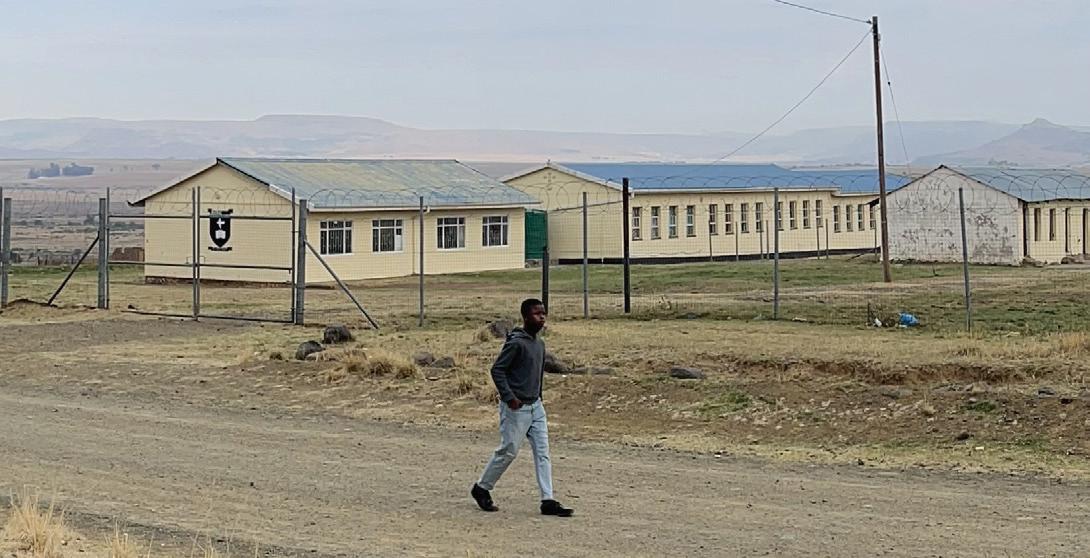
3 minute read
Inclusion and Ubuntu: A lesson from Papasi Senior Secondary School
Siphosethu Ndunge
In the heart of the Eastern Cape’s tranquil village, Eluphaphasi; stands Papasi Senior Primary School. It’s a place where the rustling of leaves is often louder than the buzz of technology. Amidst this idyllic yet marginalised setting, I had the privilege of speaking with a remarkable woman, Mrs Joyce Bonkolo. Mrs Bonkolo wears many hats: principal and teacher for Foundation Phase grades 2 and 3.
Our journey to this conversation was evidence of Mrs Bonkolo’s unwavering commitment to her students and community. Despite the challenges posed by an unreliable network and a perpetually packed schedule, Mrs Bonkolo’s kindness and determination shone through, eventually granting us the opportunity to delve into the intricacies of social challenges, Life Orientation, government support, and the unyielding support of the Eluphaphasi community.
As we engaged in conversation, I was struck by the spirit of unity and inclusion that permeates the school’s ethos. Mrs Bonkolo spoke with heartfelt gratitude about the supportive parents who actively participate in their children’s education, bridging the gap between home and school.
However, the peaceful village has its own set of social problems, as many children come from families struggling with poverty. While government grants aim to provide support, sometimes they fall prey to misuse, leaving children without proper uniforms and a sense of belonging. But here, the village community steps in with compassion, donating school essentials and reinforcing the principle of Ubuntu, the profound South African philosophy that underscores our shared humanity. Turning our focus to the curriculum, we explored the subject of Life Orientation. Mrs Bonkolo acknowledged its potential for improvement but praised the efforts of young teachers who introduce crucial conversations into the classroom with sensitivity, empowering children to report issues like sexual harassment. However, challenges persist beyond the classroom walls, particularly in marginalised communities. The call for government initiatives to educate and uplift these communities resonates loudly.
The spirit of Ubuntu extends beyond the classroom, with a local youth founding a soccer team, providing an outlet for village kids - keeping them engaged and steering them away from potential pitfalls. It’s a testament to the power of community-driven solutions.
Mrs Bonkolo’s wisdom also highlights the need for better government support, especially for academically challenged students. Not all children thrive academically, but every child possesses unique talents waiting to be nurtured. Inclusion workshops for teachers and students, she suggests, could bridge the gap between different backgrounds and abilities. Yet, the challenges persist, from resource limitations to the stark reality of kids exposed to a world they’ve never seen.
Senior Primary School stands as proof of the resilience of communities in the face of adversity, where education and inclusion are the guiding lights toward a brighter future.



Key insights
1. The school’s spirit of unity and inclusion, where parents actively engage in their children’s education, showcases the power of a supportive community that bridges the home-school gap.
2. The school’s commitment to the Ubuntu philosophy extends beyond the classroom, with the local community compassionately supporting children in need, emphasising our shared humanity. This highlights the effectiveness of community-driven solutions in addressing social challenges.
3. Mrs Bonkolo’s insights stress the importance of improved government support, especially for academically challenged students. Inclusion workshops for teachers and students can bridge gaps across backgrounds and abilities, nurturing each child’s talents, underscoring the significance of inclusive education.










